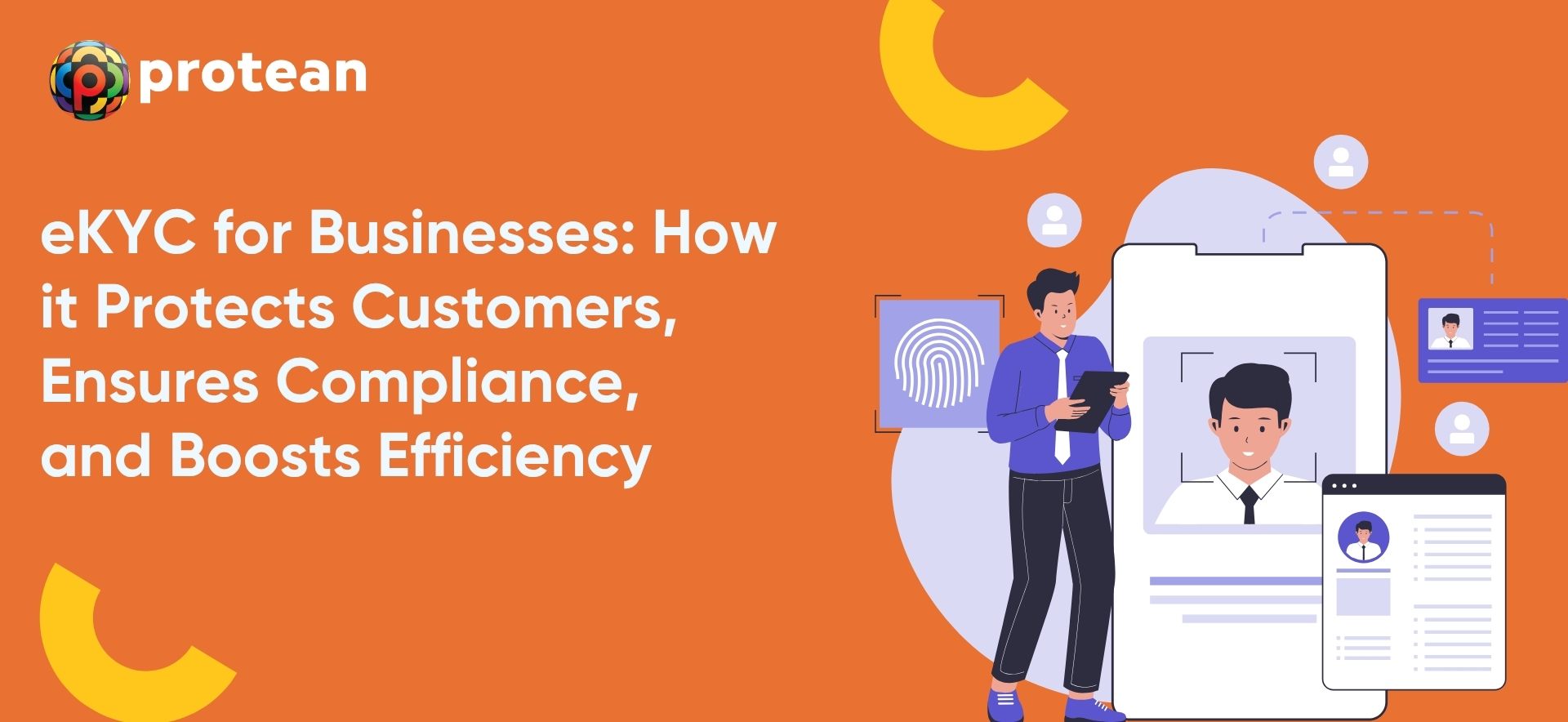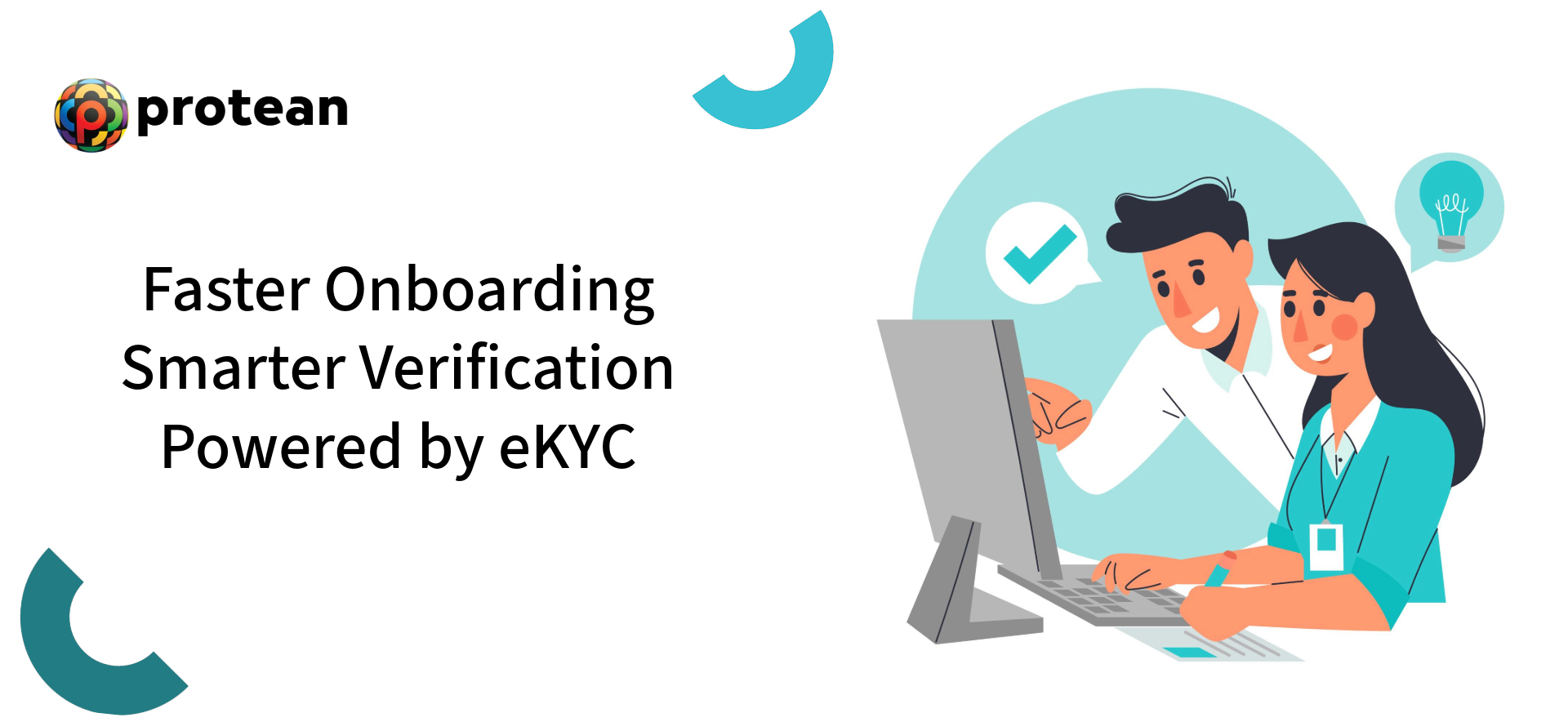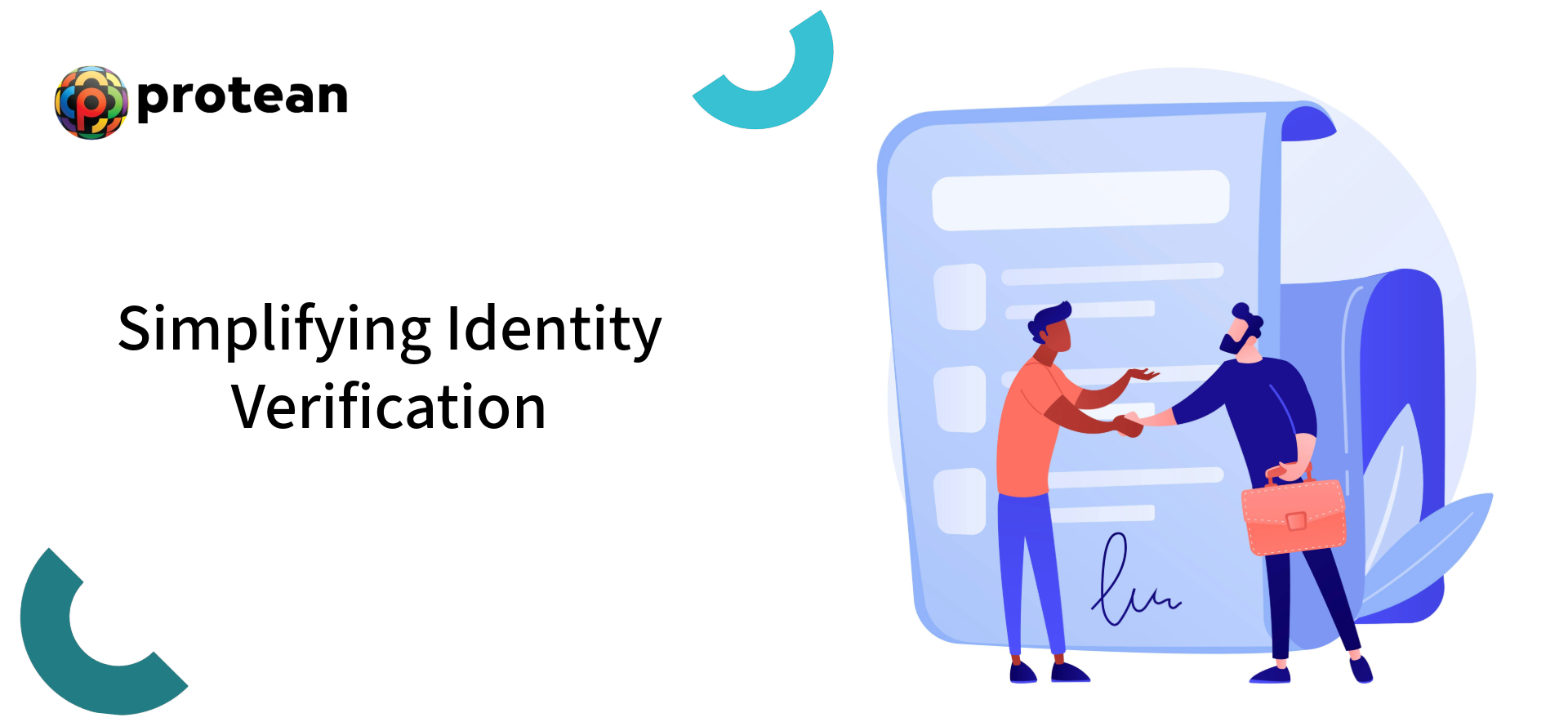Blog
eKYC for Businesses: How it Protects Customers, Ensures Compliance, and Boosts Efficiency
In a world where digital interactions are becoming the norm, the need for secure and efficient identity verification is more important than ever. This is where eKYC (Electronic Know Your Customer) plays a crucial role. Whether you run a bank, fintech company, insurance firm, or any customer-facing business, eKYC ensures that you're onboarding genuine individuals while keeping your processes compliant and streamlined.
But before diving into how it works, let’s start by understanding what is KYC in the first place.
| Also Read: KYC Digital Transformation |
What is KYC and How has it Evolved?
KYC, short for Know Your Customer, is a regulatory process that involves verifying a customer’s identity and address. Traditionally, this involved submitting physical copies of documents and filling out paper forms. However, the digital shift has transformed this into eKYC, allowing businesses to perform the same checks online.
eKYC uses electronic documents, Aadhaar-based authentication, facial recognition, or video verification to validate a user’s identity, making the process quicker, safer, and more scalable.
Key Benefits of eKYC for Businesses
Businesses across sectors are now opting for eKYC due to the clear advantages it offers:
1. Enhanced Customer Security
By requiring verified credentials, eKYC protects both the business and the customer from identity theft, fraud, and impersonation.
2. Faster Onboarding
What once took days can now be done in minutes. Customers can upload documents or validate identities remotely, avoiding lengthy queues or office visits.
3. Improved Compliance
For many industries, including financial services, regular eKYC checks are mandatory. eKYC helps meet regulatory requirements efficiently without compromising user experience.
4. Operational Efficiency
Automation reduces manual errors, cuts down paperwork, and enables teams to focus on more value-driven activities.
5. Easier KYC Update and Monitoring
Once digital records are in place, future KYC updates or validations can be done with minimal effort, often without resubmitting documents.
Protecting Customers Through eKYC Checks
Cybersecurity threats and identity fraud have made robust verification essential. With eKYC, businesses can:
- Detect inconsistencies or forged documents using AI tools
- Prevent multiple accounts with the same identity.
- Monitor unusual activity via eKYC inquiry alerts.
This not only secures the platform but also builds trust with customers who know their data is being handled responsibly.
| Also Read: Digital KYC using Aadhaar |
Boosting Business Performance Through eKYC
Here’s how eKYC contributes to better business performance:
- Customer Retention: Easy onboarding encourages people to complete the sign-up.
- Fewer Drop-Offs: A smooth eKYC experience reduces form abandonment.
- Remote Accessibility: Businesses can verify users from any location without physical presence.
- Cost Reduction: Less paperwork and fewer errors lower the overall cost of compliance.
Common use Cases for eKYC in India
Businesses across various industries in India have adopted eKYC, especially those that are:
- Financial institutions like banks, NBFCs, and payment wallets
- Insurance providers
- Investment platforms
- Online service providers and e-commerce businesses
- Telecom operators during SIM activation
- Healthcare providers offering digital prescriptions or telemedicine
Challenges and How to Address Them
While eKYC brings convenience, there are a few challenges that businesses may face:
- Connectivity issues in remote areas are affecting digital access.
- Mismatch in official records leading to delays in verification.
- Customer hesitation due to privacy concerns.
These can be tackled with proper training, secure platforms, and clear communication with users on how their data is protected.
| Also Read: eKYC for Businesses |
Conclusion
In today’s business environment, knowing your customer is not just a legal requirement but a necessity for long-term success. By adopting electronic KYC processes, businesses can ensure they’re making safe, data-backed decisions while offering users a seamless and secure experience. From a simple eKYC update to a comprehensive eKYC inquiry, digital tools have made it easier than ever to remain compliant and customer-friendly.
Whether you're a startup or an established enterprise, integrating eKYC into your customer onboarding and compliance strategy is a smart move toward operational excellence.
Frequently Asked Questions
1. What is KYC, and why is it essential for businesses?
KYC stands for Know Your Customer. It helps businesses verify identity, ensure compliance, and reduce fraud risks during customer onboarding.
2. How can I check the KYC status of my customer?
A KYC status check can be done using the customer's details through official portals or integrated APIs, depending on the business's internal systems.
3. What happens during a KYC inquiry?
A KYC inquiry is when a business reviews a customer’s identity details and updates their compliance records, often triggered during audits or account reviews.
4. How often should a business request a KYC update?
Periodic updates are typically based on regulatory requirements or internal policies. High-risk accounts may require more frequent checks.
5. Is eKYC safe for handling customer data?
Yes, if done through secure channels and platforms, eKYC offers high levels of security, reducing the chances of data leaks or unauthorised access.






